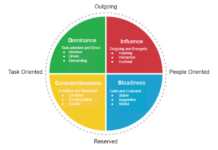
You’ve done a LOT of interviews during your career as both a journalist and content marketing writer. What makes for a really great one?
Chuck Leddy: First, there needs to be expertise—where the person acting as the source really knows what they are talking about. They should inhabit a place that the journalist and their audience doesn’t know. I can’t always write with authority on a subject and I need sources to build credibility. The source should have a platform—through experience, education or otherwise—that they can teach people. I like when we can learn new things from a source.
The other important piece is human interaction. The best interviews are ones where a good personality and rapport is on display. It is fun for the audience when they can feel that sparkle and human presence come through. It is really helpful when the interviewee understands the audience and can connect with them in that way—addressing their commentary with a level of relevance.
You have some great tips and advice for interviewing sources. A lot of our readers are CEOs and subject matter experts being interviewed; how should they, as sources, prepare for an interview?
Chuck Leddy: There are three things that both journalists and sources need to know before an interview. The first is a clear understanding of who you are—self reflect to figure that out and what you want to stand for. Next you need an understanding of how your point of view aligns with the publication or audience that the interview is for. This will ensure you can then address the third step, which is to speak your vision to that audience in the interview.
Beyond that, sources should also get to know the journalist and find something that can help build rapport. Maybe you’re from the same region or went to the same school. That connection will help humanize the interview.
If you can ask for the questions in advance that will also help with prep. I typically provide questions at least a day or two in advance of every interview and think it’s perfectly appropriate to ask (note: we at V2 have found this to be a very personal preference: some journalists are very open to it, others have strong opinions against it).
Are there any common mishaps sources make, and what are they?
Chuck Leddy: Scheduling and timing is one big one. For example, when a source is in San Francisco and I’m in Boston, I always include the time-zone in our communications, but mix-ups still happen. Typically if a time doesn’t work, you can answer the phone and ask the journalist to call you back in a few minutes or an hour. Be honest about your schedule and when may be a better time.
Other mishaps happen around listening. Focus on the journalists questions and answer those questions—and be careful about going too far off on a tangent that isn’t relevant. You, as a source, may have some control over the interview, but it should really be about taking turns. Listen for the cues from the person you’re talking to– for example, the silence or hesitation after a question or when one person finished talking. I like to think of the interview like it’s a dance – who moves, who responds, how it flows, etc.
Read the FULL interview here.





